This post is also available in: polski
Podlasie cuisine appreciated by the best chefs
Podlasie cuisine has entered the culinary map of Poland relatively recently, but its great potential was quickly confirmed by world-class chefs. The notion of “Podlasie cuisine” comprises unique dishes from the whole Podlaskie Voivodeship which for hundreds of years has been an area where different cultures and religions meet. The centuries-old presence of Jews, Tatars and the coexistence of the Belarusian, Ukrainian and Lithuanian minorities had a huge impact on the way the food is cooked in our region. It is in Podlaskie that you shall taste dishes completely unknown in other parts of the country and whose names will be slightly exotic and the ingredients based on what was grown in the Podlaskie region. One of the editions of the prestigious Cook it raw culinary event took place in the Suwałki region – it was then, in 2012, that we became a region ideally suited to the hypermodern trend called SLOW FOOD. Our housewives do not even know that their cooking is trendy! Podlasie cuisine has been the same for centuries: simple, based on local seasonal products, nutritious and most importantly… tasty! We invite you to a review of the most representative regional dishes of the Podlaskie Voivodeship. We will start our culinary journey from the south of the region.
1. Zaguby. Bug River Podlasie
At this moment even the inhabitants of Podlaskie Voivodeship are startled because rather few of them have ever heard about this dish… Unless they ate in Drohiczyn or Siemiatycze. Zaguby is a dish available only on the Bug River, which is a pity! The secret of the unique taste is a dumpling (pierogi’s) dough and filling made of raw potatoes. However, these are not pierogis: the filling is wrapped in a large sheet of dough which next is rolled up, cut into pieces and boiled. Zaguby is a specialty of the restaurant “U Ireny” in Drohiczyn. As we have learned, the traditional recipe has been used here for decades!

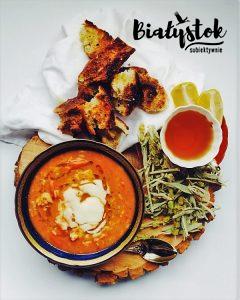
2. Armillaria (honey fungus) soup. Białowieża Forest
The forests of the Białowieża Primeval Forest abound in mushrooms. Armillaria, called honey fungus is one of the most common edible species and especially in autumn it occurs massively in the forest. These mushrooms are bought, salted, stored in barrels and used in Białowieża restaurants. An obligatory appetizer during your stay in the Forest! Another popular and nutritious soup worth tasting and testing is solyanka, a traditional Russian dish. How come we have Russian tradition present in Białowieża? Well, it is worth realizing that Białowieża was once the beloved place of rest and hunting of the last tsars of Russia.
3. Marcinek. Hajnówka and its surroundings

Cakes baked in Podlaskie are the true poetry of taste. Marcinek, which is traditionally made in the vicinity of Hajnówka, is today a must for every important party and wedding. Surely it will not replace a traditional sękacz – tree cake, but it is heavenly scrumptious. The dough is very laborious because it consists of many thinly rolled pies filled with cream. The result is definitely worth the effort put into it! Traditional marcinek, layered cake, must not be too sweet.
4. Potato sausage and potato pie. Podlasie cuisine – classics
These two dishes are our daily routine, you can get them all over the region. Every housewife knows how to prepare a potato babka, i.e. potato pie (or pudding, depending on a recipe) but the potato sausage is definitely a master level. Both dishes are made of grated potatoes to which we add pieces of fried bacon, onion and spices. The next step is baking… We put the pie on a baking tray and place it in the oven. In order to bake a potato sausage called kiszka, we need to prepare the hog casings (large intestine) and put the potato stuffing into them. An incompetently baked sausage breaks, it may also smell odd. However, when made with practice, it is delicious. In every house the potato babka is served differently…in restaurants you may eat it with mushroom sauce, salads, even with cranberries, but in many households it is traditionally eaten with … cold milk. A potato babka is a tradition derived from Jewish cuisine where it is called kugel.
5. Buza – Białystok. Podlasie cuisine – Balkan influences
Buza is a unique beverage available in the Balkans and in …Bialystok! It used to be extremely popular before World War II – in the capital of Podlasie region Macedonians started to sell it – where did they come from? You can read about this and other pre-war specialties HERE. Buza is a non-alcoholic drink, fermented on the basis of millet groats. Strongly chilled, served with raisins – it quenches thirst perfectly. Its taste is similar to that of a podpiwek, but it is whitish and cloudy. In the photo it is poured straight from barrels and served to Białystok residents during the City Days.
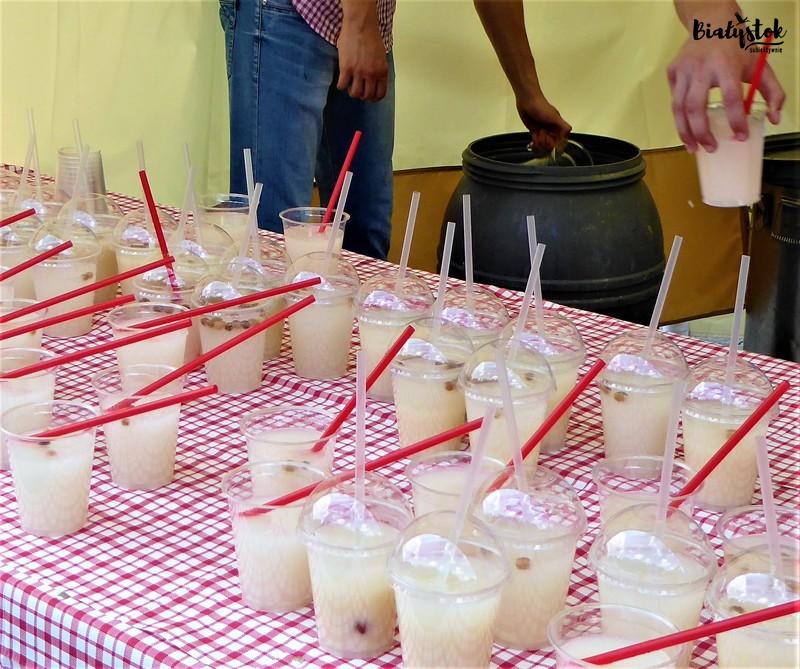
6. Pierekaczewnik – Kruszyniany. Tatar cuisine
From the whole range of the Tatar cuisine dishes we have chosen pierekaczewnik to our list. It is a unique product: registered in the EU by the owner of a Tatar Restaurant Tatarska Jurta as a regional product with centuries-old tradition. To make pierekaczewnik you have to work hard! On the product description page you can read what makes that dish unique:”… a multi-layered structure resulting from placing thin (almost transparent) layers of dough on top of each other. This effect is achieved by rolling the dough very thoroughly. After all the layers of dough and filling have been laid out, everything is rolled up. This allows the characteristic pierekaczewnik cross-section to show numerous layers of dough and filling alternately. After baking, the appearance of the pierekaczewnik resembles that of a snail shell. Depending on the filling, the flavor is spicy or sweet. The product is traditionally served warm, so that the individual layers of the product separate and become slightly crispy. For this and other Tatar dishes, many tourists have lost their heads.
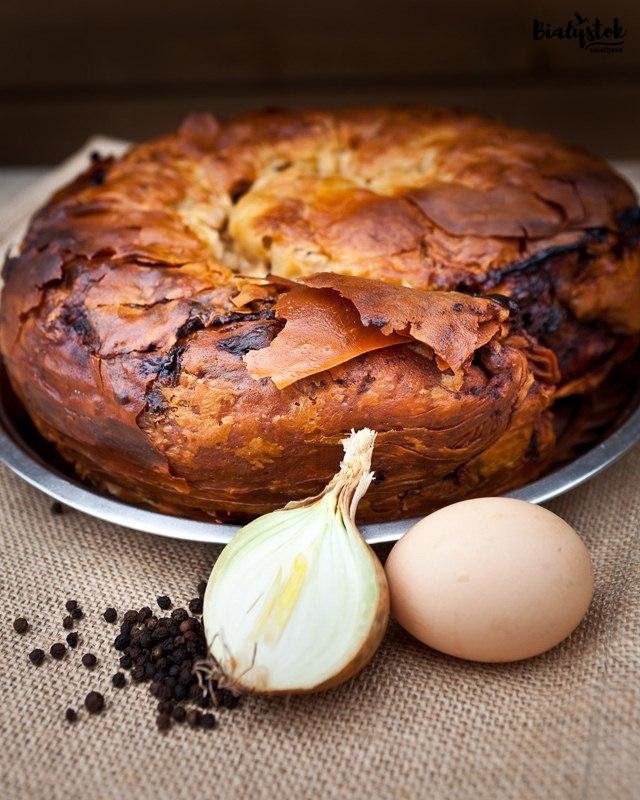
7. Homemade Korycin cheese. Podlasie cuisine
Maturing cheese made from unpasteurized whole cow’s milk with the addition of rennet and kitchen salt. Its characteristic shape and taste are easily recognizable. Ser koryciński swojski – homemade Korycin cheese has been entered in the EU register as a Protected Geographical Indication. It is produced in three communes of Podlaskie Province, Sokółka County: Korycin, Suchowola, Janów. Healthy, Polish, regional – it has won the hearts of many Poles, and in Podlasie every self-respecting restaurant has it on its menu. The way in which the cheese is made has remained unchanged for years – according to tradition since the Swedish Deluge.
8. The spirit of the Forest (bimber)
Moonshine, Siwucha (ash grey) vodka, the Spirit of the Forest, eventually customary: moonshine/bootleg. A few years ago when an attempt was made to replace an illegal alcoholic product with “Podlasie Brand of the Year”, the vice-starosta (deputy head of the county) of Podlasie said: “Bootlegging as one of the last relics of folk industry in Podlasie is a symbol of this region like oscypek (ovine milk cheese) in Podhale”. There is no denying that… more illegal moonshine manufacturing plants are regularly liquidated by the police but the trade is flourishing. The traditional area of forest manufacture operations is the Knyszyn Primeval Forest. One of the moonshine still even became an exhibit in the Białystok Village Museum. And it could be like in Belarus – where every tourist gets a test kit and admires the working manufactory… Please don’t ask us where you can buy Podlasie moonshine, the best is to read our article about it HERE.
9. Kartacze – Potato dumplings called cepelins in the Suwałki region
They resemble commonly known dumplings, but the recipe and shape of kartacze is slightly different. First of all, grated raw and cooked potatoes are used to make them. A decent potato kartacz cannot be white because, as we know, grated potatoes naturally darken. Filling – minced meat with spices, should not be compact and the whole thing is generously sprinkled with lard greaves. Kartacze are very popular in the whole region, but experts indicate their roots in Lithuania and the Suwałki region
10. Sękacz – a tree or knotted cake. Podlasie cuisine – Suwałki region, Biebrza region
Sękacz is a sponge cake made from 40 eggs! Legend has it that the first cake tree or Baumkuchen was baked especially for Queen Bona. This traditional Old Polish spit cake was baked over an open fire, over which a thick wooden roller was placed. The roll was turned and poured with a thin layer of pastry. The flowing and dripping mass causes the characteristic knots to appear on the pastry. The average cake tree is approximately 50-60 cm high. There is no Podlasie wedding without this cake! If you want to watch a show of sękacz baking it is worth making an appointment in advance.
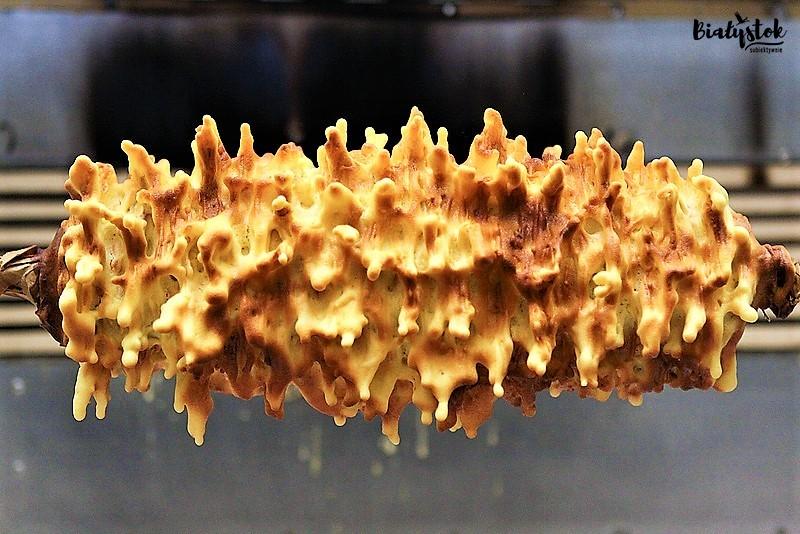
Dear readers, our article is only a subjective choice. By selecting the 10 best products of Podlaskie cuisine we left with regret such products as: Jagodzianka Augustowska (Augustów Blueberry Bun), Kindziuk (a maturing sausage), cold soups, breads, head cheese… It is worth visiting Podlaskie and personally checking how delicious our regional cuisine is. Please be welcome!
In the autumn of 2018, a text about beverages to be tasted in Podlaskie was written, have a look: HERE.

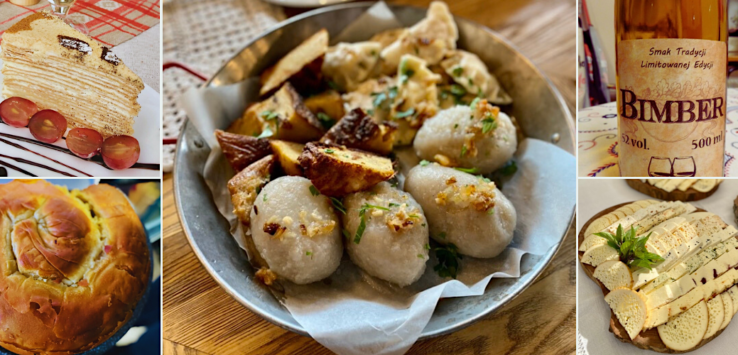
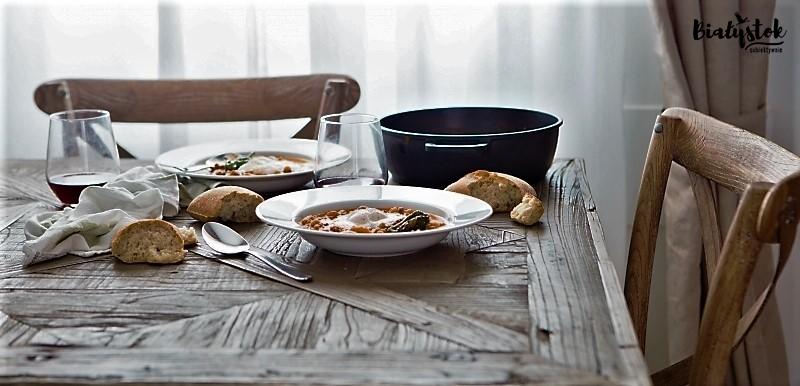
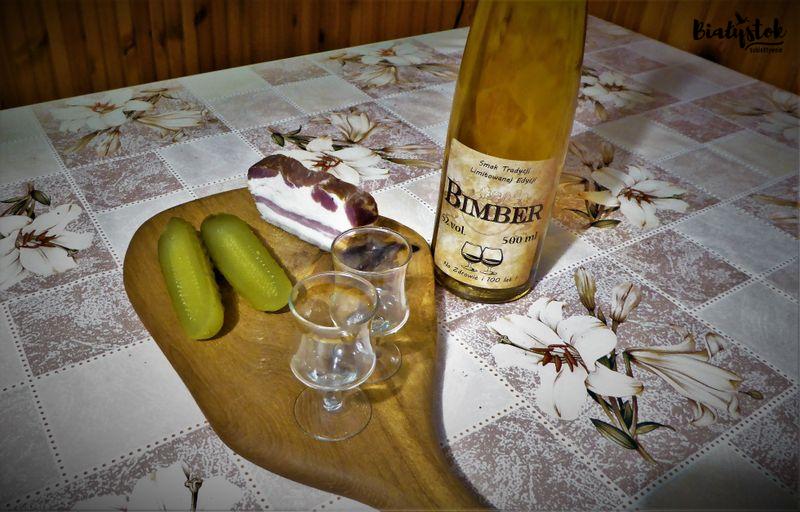
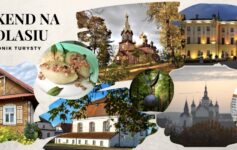
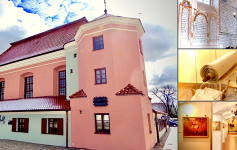
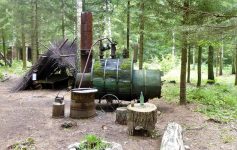


Leave a Reply